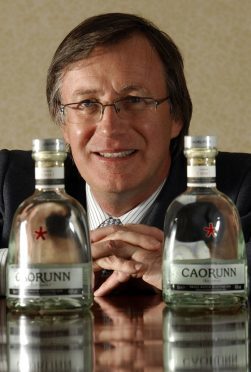Pre-tax profits at Inver House Distillers fell 19.5% as the company switched its focus from bulk business to future growth of its premium spirits portfolio.
Yesterday the distiller described the 12 months to December 2015 as a “year of transition,” with a major reorganisation of distribution arrangements in the key US market also reflected in its results.
Although pre-tax profits for 2015 were, £9.47 million, compared with £11.76 million in 2014, Inver House managing director Graham Stevenson said the results were “slightly ahead of expectations.”
Turnover at the company was down 15.2% to £67.2 million, largely due to a reduction in sales of bulk whiskies.
The company’s continuing strategy of investment in building stocks of its brands for future sales, includes the completion of a multi-million pound expansion of the Speyburn Distillery, in Rothes.
Inver House said its core brands have continued to perform strongly, with its single malts, Old Pulteney, Speyburn, anCnoc and Balblair, showing “excellent growth in their focus markets with the exception of the USA and Russia.”
The company’s super-premium small batch gin, Caorunn, made at Balmenach Distillery, near Grantown, also performed strongly, becoming one of the top selling gins in the Scottish and UK off trade, with a sales value increase of 65% on last year.
Inver House said trading conditions were “challenging” in many emerging markets, including its parent group’s home country of Thailand
Mr Stevenson said: “Although our reported profits have fallen, our actual results are slightly ahead of expectations. 2015 was the start of a period of transition as we began to reduce our reliance on bulk and lower value products, and we took the opportunity to make significant changes to our distribution arrangements in the very important US market.
‘We have strong brands which continue to grow despite difficult trading conditions in numerous markets.”
He added: ‘As I look forward I don’t anticipate any immediate improvement in global economic conditions and of course we now have to address the uncertainties resulting from the “Brexit” vote and the potential implications for our trading arrangements, both with the EU and with other markets.
“Our industry has coped with many such challenges in the past and will do so again. In the long term I remain confident and optimistic as we continue to build our business for a successful future.’
